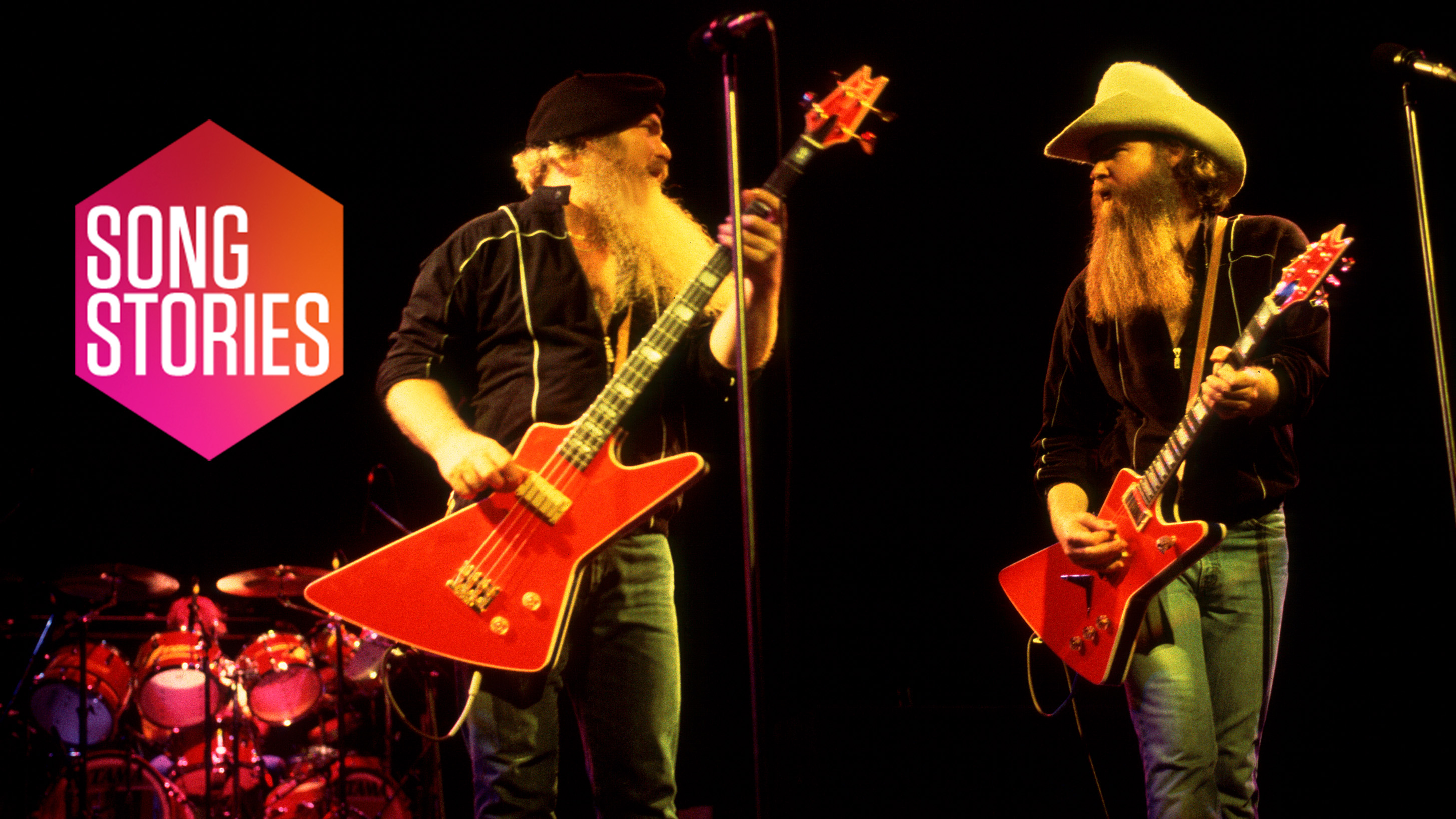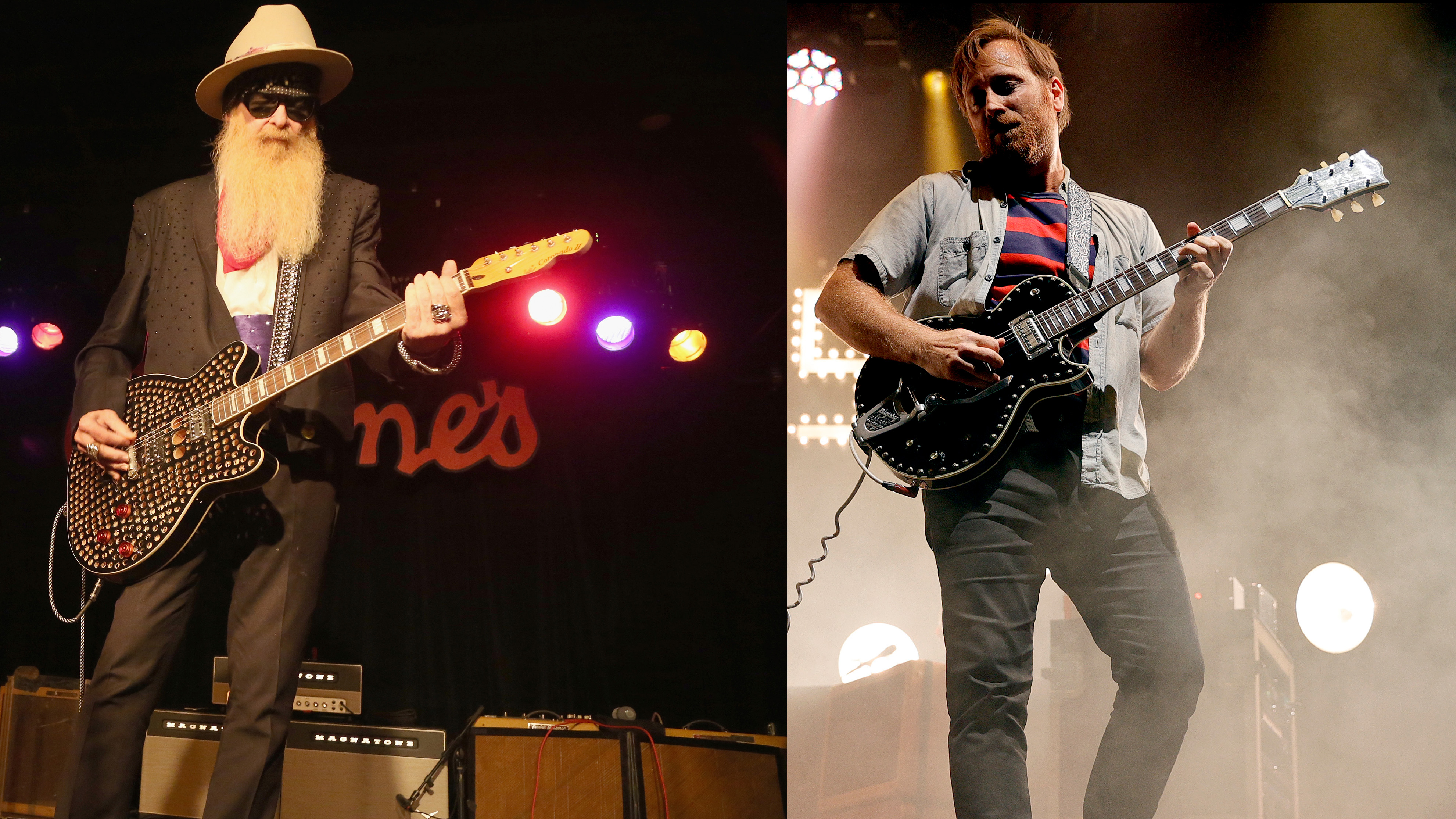ZZ Top's Billy Gibbons: "Gimme All Your Lovin’ is all about tone. Get the grind and you got it goin’ on"
The blues firebrand and engineer Terry Manning tell the guitar story of an '80s blues rock classic

Back in 2011, Billy F Gibbons assured Total Guitar that Gimme All Your Lovin’ is “all about tone. Get the grind and you got it goin’ on. That’s the starting point, then learn to play what you want to hear, crank it up and rock on.”
That tone and grind were key hallmarks of Eliminator, ZZ Top’s monster hit album in 1983. By then, ‘That Little Ol’ Band From Texas’ were 14 years and seven albums into their career.
Behind the blue-collar trio ticked some shrewd minds, none more so than manager/ producer Bill Ham. So when MTV landed in ’81, the band (that’s Gibbons, drummer Frank Beard and late bassist Dusty Hill) were ready, creating a cartoonish image that rested on ‘beards, babes and braggadiociousness’.
The basic track appeared initially, inspired by the guitar riff, which clicked with the rhythm section right off
Billy F Gibbons
Hill and Gibbons grew facial hair down to their belts, while their videos saw them drive a 1933 red Ford ‘Eliminator’ coupe and flanked by leggy models. Fun, distinctive and MTV-friendly, ZZ Top quickly became part of the fabric of the channel’s early era. Dubbed ‘synthesiser with soul’, their sound was new too – the blues boogies retro-fitted with cutting edge production and equipment. Eliminator’s opening track and lead single defined their 80s renaissance.
“Gimme All Your Lovin’ came together in two parts,” recalled Gibbons. “The basic track appeared initially, inspired by the guitar riff, which clicked with the rhythm section right off. The words came later, drawing inspiration from Mick [Jagger] and [Keef]’s stylistic works. After remaining in exile for a week in Room 501 at the Peabody Hotel, the pieces were intact. The take-out from Molly’s Mexican Cantina kept us going to see it through!”
It was recorded at Ardent Studios, Memphis, Tennessee, with the band’s long-serving engineer, Terry Manning. “On the tape box, we jokingly called the music Stones Rip,” recalled Manning to TG, now Managing Director of Compass Point Studios. “We called it that right up to the day the lyrics, and thence vocals, appeared. As we neared the end, Billy felt under more and more pressure to get some lyrics done and one day finally popped in Gimme All Your Lovin’.”

Like most of Eliminator, Gimme was cut using Gibbons’ custom Dean Z. “Billy would bring in different guitars,” said Manning, “always looking for something a bit new. There were two Deans, the only major difference was the body shape. Both had a single DiMarzio Super Distortion high-output pickup and no controls at all.”
Want all the hottest music and gear news, reviews, deals, features and more, direct to your inbox? Sign up here.
The Dean was recorded dry with just one setup: a Legend 50-watt hybrid unit with valve preamp and transistor power amp. “The band cut the basics together to get it up and running,” said Gibbons. “The follow through got easier once that initial ground got laid.”
Manning says those basic tracks were painstakingly reworked to get the characteristic polished, machine-like sound. “The guitars were done section by section. Short phrases were played, then double-tracked onto one set of tracks, then the chord change or next phrase was played on a second set of tracks. They were then cross-faded together as seamlessly as possible to achieve a complete track.”
“It certainly felt different,” said Gibbons of the technique. “Tuning and timing remained the aim. And, most assuredly, those elements kept each track cohesively together. Midway into the sessions, the general feeling toward the material was upbeat and gaining momentum.”
Gibbons’ juicy solo sees him bend his trademark pentatonics around the song’s C Mixolydian key. “Oh, yeah, one take, that!” he remebered with some pride. “Cutting the rare, one-time take is a bonus, a true reward, falling out of the sky so to speak. That one unfolded in the control room and the up-close proximity with the rhythm track made for a live-like experience. The tail-out solo was tracked during a subsequent session.”
The control room monitors were up loud, with Billy’s guitar on the verge of feedback at all times, contributing to the tone. “Billy’s such a naturally talented player, one of the best,” says Manning. “That makes working this way go so well. Many couldn’t have pulled it off.”

ZZ Top had dabbled with synths on previous albums, but they became an integral part of their sound on Eliminator. “Terry pointed out the newest contraptions laying about at Ardent,” noted Gibbons, “and we simply put ’em into service, not really knowing what we were doing. The controls were tweaked till the additives felt right and rockin’.”
Gimme’s Fender Precision bassline by the late, great Dusty Hill was augmented by a Moog analogue synth, powering the tune like a hotrod’s popping pistons. Splashes of MemoryMoog coloured the choruses and the band was joined on backing vocals by Jimi Jamison (who would later sing Survivor’s hit Burning Heart and I’m Always Here, the theme tune to Baywatch.)
Eliminator went on to sell an estimated 15 million copies worldwide. There was no other band in the world – or, more importantly, on MTV – who looked and sounded like ZZ Top in ’83, and Gimme played a vital role in establishing them firmly in the popular psyche.
“We knew exactly what we had right from the very first guitar overdub,” remembered Manning. “I had no doubt that it would do exactly what it did in the marketplace. There are a few rare times in music recording when you know this sure on the spot; this was certainly one of them.”